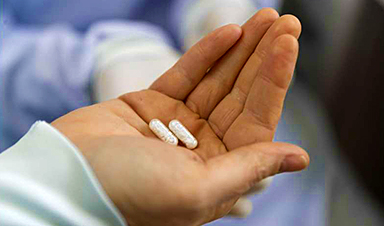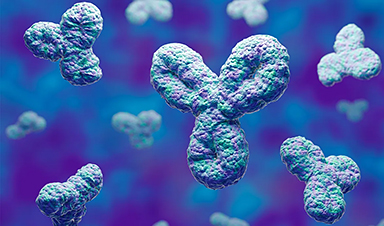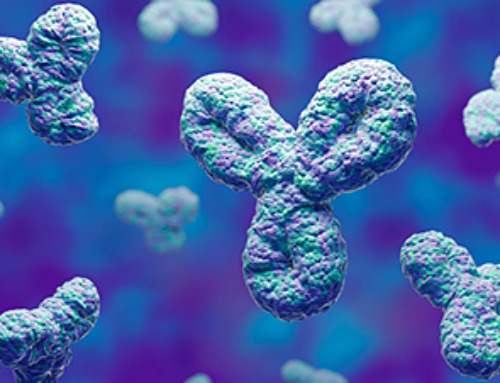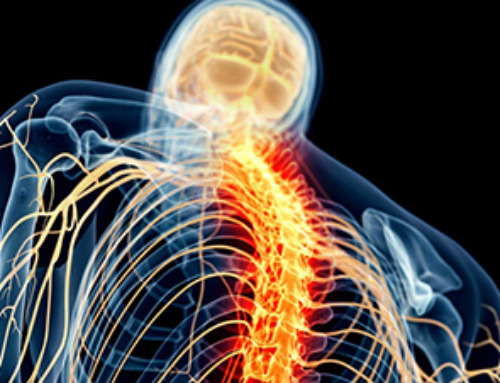An international team, led by researchers from Australia, have developed a system using nanotechnology that could allow people with diabetes to take oral insulin in the future. The researchers say the new insulin could be eaten by taking a tablet or even embedded within a piece of chocolate.
The new nano carrier, tested in mice, rats and baboon animal models, could help people with diabetes avoid side-effects linked to insulin injections such as hypoglycemia (a low blood sugar event, when too much insulin has been injected).
These animal studies have shown that the greatest strength of the nano-scale material is that it can react to the body’s blood sugar levels. The coating dissolves and releases the insulin when there is a high concentration of blood sugar and importantly does not release the insulin in low blood sugar environments.
The new oral insulin uses a type of nano-scale material that is 1/10,000th the width of a human hair. The material acts similarly to acid resistant coating on tablets, which protects it from being destroyed by stomach acid. But this new coating instead surrounds individual insulin molecules and becomes a “nano carrier”—acting like a courier to ferry insulin molecules in the body to the places it needs to act.
The findings are published in Nature Nanotechnology.
It is estimated 422 million people worldwide have diabetes, and approximately 75 million of these inject themselves with insulin daily. Around 1.5 million deaths are directly attributed to diabetes each year. In 2021, it was estimated more than 1.3 million Australians were living with diabetes.
Lead author Dr. Nicholas Hunt from the University of Sydney’s School of Medical Sciences in the Faculty of Medicine and Health, says the development of a safe and effective oral insulin has been a challenge since insulin was discovered over a century ago.
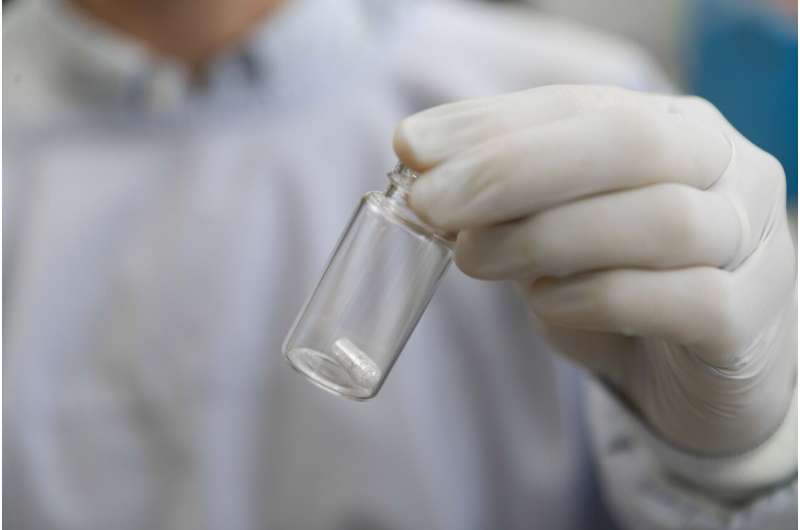
“A huge challenge that was facing oral insulin development is the low percentage of insulin that reaches the blood stream when given orally or with injections of insulin,” says Dr. Hunt, who is also a member of the University of Sydney Nano Institute and Charles Perkins Center.
“To address this, we developed a nano carrier that drastically increases the absorbance of our nano insulin in the gut when tested in human intestinal tissue.”
Preclinical testing in animal models found that, following ingestion, the nano insulin was able to control blood glucose levels without hypoglycemia or weight gain. There was also no toxicity.
“Our oral insulin has the added benefit of greatly reducing the risk of hypoglycemic episodes. For the first time we have developed an oral insulin that overcomes this major hurdle,” said Dr. Hunt.
Human trials are expected to start in 2025 led by the spin out company Endo Axiom Pty Ltd.
Endo Axiom Pty Ltd was founded by Professor Victoria Cogger, Professor David Le Couteur AO and Dr. Nicholas Hunt, after 20 years of research.
Dr. Hunt and his team were driven to develop oral insulin technology given it could help lighten the economic, health and well-being burden related to diabetes management for patients.
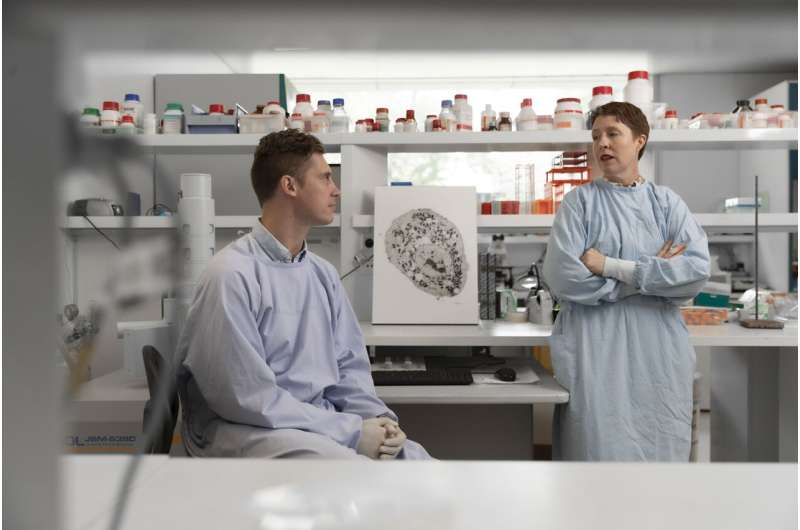
“We wanted to devote our time to develop successful oral insulin technology because we believe it will help people with diabetes have more control over their condition.”
Senior author Professor Victoria Cogger, director of The ANZAC Research Institute, said the development of oral insulin is the culmination of many years of scientific endeavor and collaboration.
“It’s wonderful to see our work published, supported by Endo Axiom and reaching clinical trials?—to be able to lead a change in the way we treat a disease that impacts so many people,” she said.
Professor Cogger said when her work first began on creating an oral insulin it was a purely scientific question, but then a family member became impacted by type 1 diabetes.
“Life is strange and along the way my family was impacted by a type 1 diabetes diagnosis, and I really started to understand the reality of what life is like on injectable insulin therapy.
“Having that lived experience has driven the project in many ways and created an impetus to improve life for all people living with diabetes. My hope is we can reduce the multi-faceted burden of diabetes through easily accessible oral insulin.”
More information: Nicholas J. Hunt et al, Oral nanotherapeutic formulation of insulin with reduced episodes of hypoglycaemia, Nature Nanotechnology (2024). DOI: 10.1038/s41565-023-01565-2
Journal information: Nature Nanotechnology
Provided by University of Sydney
News
Specially engineered antibody delivers RNA therapy to treatment-resistant tumors
Elias Quijano, PhD; Diana Martinez-Saucedo, PhD; Zaira Ianniello, PhD; and Natasha Pinto-Medici, PhD, there are 25 other contributors, most from Yale's Department of Therapeutic Radiology and from the departments of genetics, molecular biophysics and [...]
Vaccinated women face fewer cervical cancer risks
New data from Denmark shows the HPV vaccine’s powerful long-term impact, while also revealing why cervical cancer screening is still essential. A Danish study published in the journal Eurosurveillance reports that women who received the human [...]
3D-printed implant offers a potential new route to repair spinal cord injuries
A research team at RCSI University of Medicine and Health Sciences has developed a 3-D printed implant to deliver electrical stimulation to injured areas of the spinal cord, offering a potential new route to [...]
Nanocrystals Carrying Radioisotopes Offer New Hope for Cancer Treatment
The Science Scientists have developed tiny nanocrystal particles made up of isotopes of the elements lanthanum, vanadium, and oxygen for use in treating cancer. These crystals are smaller than many microbes and can carry isotopes of [...]
New Once-a-Week Shot Promises Life-Changing Relief for Parkinson’s Patients
A once-a-week shot from Australian scientists could spare people with Parkinson’s the grind of taking pills several times a day. The tiny, biodegradable gel sits under the skin and releases steady doses of two [...]
Weekly injectable drug offers hope for Parkinson’s patients
A new weekly injectable drug could transform the lives of more than eight million people living with Parkinson's disease, potentially replacing the need for multiple daily tablets. Scientists from the University of South Australia [...]
Most Plastic in the Ocean Is Invisible—And Deadly
Nanoplastics—particles smaller than a human hair—can pass through cell walls and enter the food web. New research suggest 27 million metric tons of nanoplastics are spread across just the top layer of the North [...]
Repurposed drugs could calm the immune system’s response to nanomedicine
An international study led by researchers at the University of Colorado Anschutz Medical Campus has identified a promising strategy to enhance the safety of nanomedicines, advanced therapies often used in cancer and vaccine treatments, [...]
Nano-Enhanced Hydrogel Strategies for Cartilage Repair
A recent article in Engineering describes the development of a protein-based nanocomposite hydrogel designed to deliver two therapeutic agents—dexamethasone (Dex) and kartogenin (KGN)—to support cartilage repair. The hydrogel is engineered to modulate immune responses and promote [...]
New Cancer Drug Blocks Tumors Without Debilitating Side Effects
A new drug targets RAS-PI3Kα pathways without harmful side effects. It was developed using high-performance computing and AI. A new cancer drug candidate, developed through a collaboration between Lawrence Livermore National Laboratory (LLNL), BridgeBio Oncology [...]
Scientists Are Pretty Close to Replicating the First Thing That Ever Lived
For 400 million years, a leading hypothesis claims, Earth was an “RNA World,” meaning that life must’ve first replicated from RNA before the arrival of proteins and DNA. Unfortunately, scientists have failed to find [...]
Why ‘Peniaphobia’ Is Exploding Among Young People (And Why We Should Be Concerned)
An insidious illness is taking hold among a growing proportion of young people. Little known to the general public, peniaphobia—the fear of becoming poor—is gaining ground among teens and young adults. Discover the causes [...]
Team finds flawed data in recent study relevant to coronavirus antiviral development
The COVID pandemic illustrated how urgently we need antiviral medications capable of treating coronavirus infections. To aid this effort, researchers quickly homed in on part of SARS-CoV-2's molecular structure known as the NiRAN domain—an [...]
Drug-Coated Neural Implants Reduce Immune Rejection
Summary: A new study shows that coating neural prosthetic implants with the anti-inflammatory drug dexamethasone helps reduce the body’s immune response and scar tissue formation. This strategy enhances the long-term performance and stability of electrodes [...]
Scientists discover cancer-fighting bacteria that ‘soak up’ forever chemicals in the body
A family of healthy bacteria may help 'soak up' toxic forever chemicals in the body, warding off their cancerous effects. Forever chemicals, also known as PFAS (per- and polyfluoroalkyl substances), are toxic chemicals that [...]
Johns Hopkins Researchers Uncover a New Way To Kill Cancer Cells
A new study reveals that blocking ribosomal RNA production rewires cancer cell behavior and could help treat genetically unstable tumors. Researchers at the Johns Hopkins Kimmel Cancer Center and the Department of Radiation Oncology and Molecular [...]
